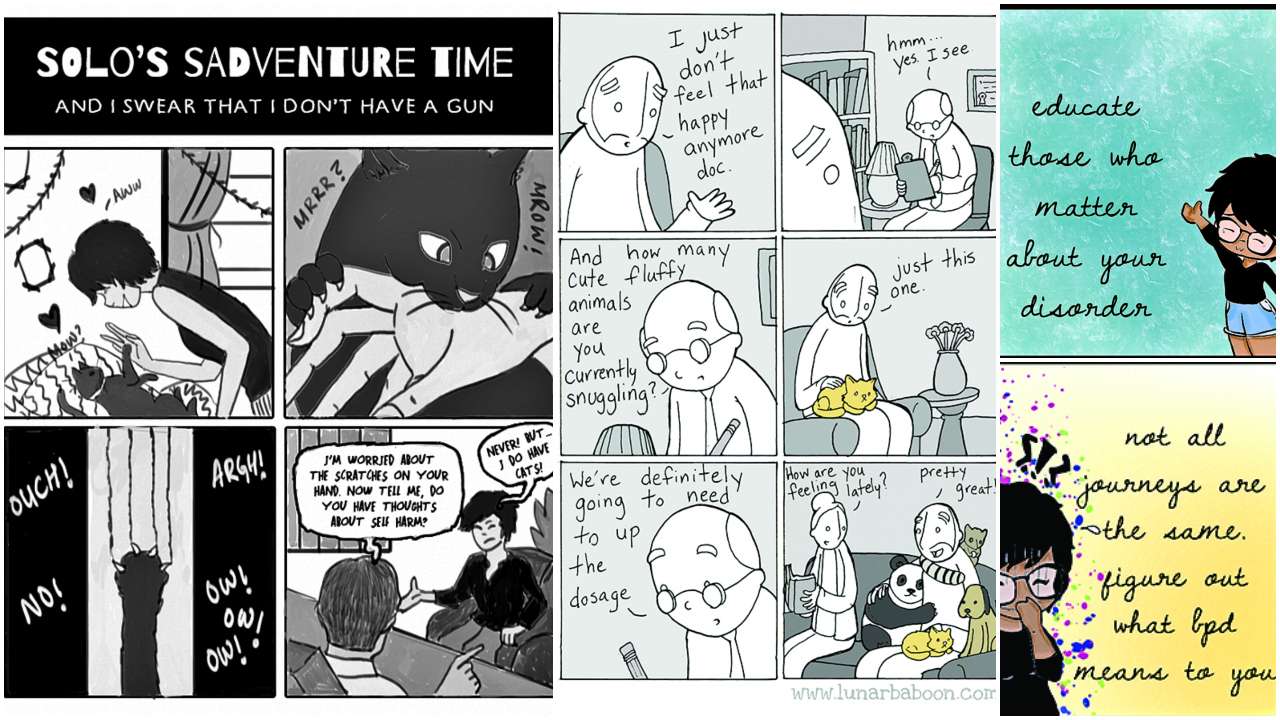
You don’t look depressed,” says one stick figure on an online meme to another.
“You don’t look like a moron yet here we are,” says the other.
Shreyasi Bose, who created the meme, started her page Clinically Depressed Memes to spread awareness about mental health as well as an outlet for her own fight against bipolar disorder and the social stigma attached to it even in this day and age. Her page is not the only one. With the online space teeming with content for all kinds of palates, there has been an increasing number of platforms where comic artists and meme-makers express their day-to-day struggles with mental health disorders and the stereotypes that surround them. A simple search for ‘mental health groups’ on Facebook alone throws up around 100 results from around the world with more on specific disorders.
“What memes do is make others aware that they aren’t alone,” explains Bose, whose page has nearly 12,000 followers.
While some memes and comics use biting sarcasm to speak about the hypocrisy of a society that still turns a blind eye to mental health issues, and uses what Bose describes as “gallows humour” to cope with depression, there are others artists who create short, uplifting comics.
Lunarbaboon comic strips talk about mental health, parenting, gender equality, etc. My Borderline Heart is another platform that posts positive quotes. Closer home, a comic artist who prefers her pen-name Solo, and earlier used to write for multiple platforms, says that her simple four-panel comics have a wider reach. Straddling the line between rib-tickling humour and gentle sarcasm, Solo’s comics centre on mental health and LGBTQ issues, and can be found on Facebook and Instagram as well as several online and print publications. “Around two years ago, I had a major breakdown and found that I couldn’t write the longform stories that I used to for publications. So I started creating comics for platforms like Gaysi and The Health Collective, and these really picked up,” she recalls.
Comics and social media posts only form one side of the online support system, says Bose. “There is also the support and information aspect.” And this is where online support groups step in. Bose, who founded one such group – Mental Health Issues Support Group – in 2016, says that it acts as a way for people to know that they are not alone in their fight and talk about their mental health disorders in a safe space (it is a closed group, where the admin of the group permits or forbids users). “It’s a voluntary support group. People rant, talk about issues, share success stories,” she explains, adding, “It acts as a journal, or an abyss you can shout into. I wanted to start one offline, but we are all busy and ill.”
Along with the support of people online, the group also helps its members (around 500 in number as of now) find psychotherapists within their localities. The admins too are often kept busy with people who are ready to open up to a stranger, but not in a group setup. “I get multiple messages from people who want a listening ear, but don’t want to talk on the group,” says Bose.
While online platforms have undeniably helped create awareness and solidarity around mental health, every individual with mental health disorders is unique. Hence, not everyone benefits from a group setup. Copywriter Satyabati Bhattacharyya says that when she had her first episode of Seasonal Affective Disorder, joining a group was far from her priorities. “I did not have the energy or inclination to be a part of any group activity, or to expose my thoughts and feelings to a large number of people,” she explains. Online or telephonic portals for mental health also didn’t help, since the former were based out of western countries and the latter only had counselors who tossed out advise like ‘do yoga’ and ‘try meditation’. “Going to a psychiatrist for a diagnosis is what helped in the end. It was reassuring for me to know what was wrong, and have concrete steps towards overcoming it.”
Counselling psychologist Kinjal Pandya, who provides both telephonic and video counselling along with her regular sessions, also says that she prefers the latter by far. “Only a psychiatrist has the authority to diagnose and label a disorder,” she says, adding, “Professional help is essential and nothing can act as a substitute. Also, even in the case of support groups, having an offline interaction where you can see the person in front of you, hear them speak and observe their body language is much better. Online groups may be a good starting point, but it cannot be a substitute for therapy.”